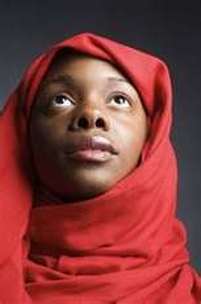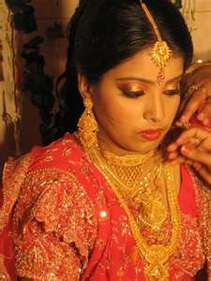Collective culture of a people is built upon their collective history. When immigrants are separated from their primary country, their culture changes to encompass only their own generation and memories. The immigrants’ struggle with English culture and history is a prominent theme in White Teeth. Clara, still governed by the history of her Afro-Caribbean roots, finds it hard to be independent in England. Alsana faces a different problem, however: after embracing the English culture, she struggles to achieve the freedom that her homeland’s culture and her Muslim heritage deny her.
Clara finds it difficult to find her own way in England, primarily because of her people’s history. When the British came to Jamaica, the Jamaicans became second-class citizens. Clara’s own mother’s birth is because of an Englishman’s choice. The English rule is never an active one, however. Durham is a passive decider, just as Archie chooses to leave decisions to chance. He leaves Hortense without a word to her, and despite being a man “of good conscience,”(Smith 297) leaves her worse off than if he had not touched her to begin with. For Clara and other Afro-Caribbeans, the English exist to remove their old culture and values, while teaching them “instruction, Christian faith, and moral guidance.”(Smith 297)
Clara struggles with this throughout the novel. She was raised as a Jehovah’s Witness, and even in her rebellion she still reaches out for authority figures. She “still [wishes] for a savior… for a man to whisk her away to choose her above others.”(Smith 38) When Clara marries Archie, even though Hortense “[ostracizes Clara] … on the doorstep”(Smith 39), Clara “still [feels] that deep down her mother would prefer her to marry an unsuitable man rather than live with him in sin.”(Smith 39) Despite being physically free, Clara is still shackled by her people’s past. When asked where Irie’s intelligence is from, she responds that she believes it to be “The English in my side… it was probably Captain Charlie Durham. He taught my grandmother all she knew. A good English education.”(Smith 294) She does not actually believe this, and regrets saying it immediately afterward, but it is in her culture and history for the English to take credit with “the religion of possession that [is their] birthright.”(Smith 301)
Alsana is a stronger, more independent woman than Clara. Despite this, she is still held down by her own culture and history. As a Muslim woman from Bangladesh, she is expected to be subdued, and was even promised to her husband before her birth. Though she constantly defies her husband, she is still looked upon differently in even British society. She disagrees with Samad’s interferences at the school governors’ meeting, attempting to stop him through force such as a “Chinese burn”(Smith 106), “[kicking] him in the ankle… [and pinching] his flank”(Smith 110). Yet the only reaction she receives from the other women present are “piteous, saddened smiles [reserved] for subjugated Muslim women”(Smith 110) when Samad is finally able to force her to raise her hand. Despite her acceptance of the new English culture, her historic ties to Bangladesh and her husband keep her separated from the freedom the British have.
Alsana is an intelligent woman who understands the strange mix of culture that immigrants of England are a part of. Samad criticizes her for wearing “running shoes and a sari… [and] one of Clara’s African headscarfs,”(Smith 166) and almost immediately after she retorts “that is a beautiful lungi you have on, Samad Miah.”(Smith, 166) It is because she married a man who wishes to be so much that he is not that she is able to have a proper perspective on the world she lives in. Despite her homeland’s culture, she is mentally a free woman. She sees England as a place where her family can “learn to hold [their] life lightly.”(Smith 176) She remembers the uncertainty of life in Bangladesh as a reality, while Samad remembers the country only through its people’s history. For Samad, the Bangladeshi and Muslim culture he clings to is all he has to try and become a better person through. He feels that this is necessary because he never becomes the great war hero that he feels he should because of his family’s own history.


